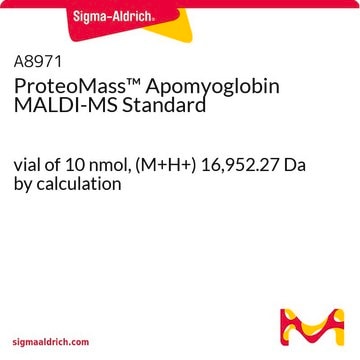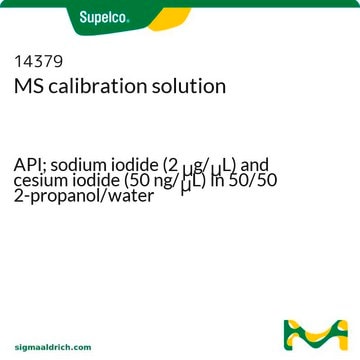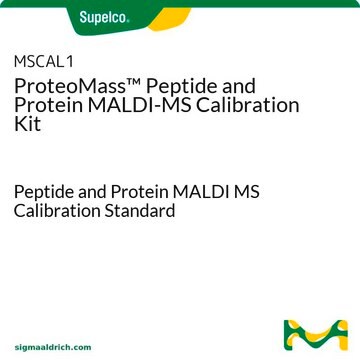M1170
Met-Arg-Phe-Ala acetate salt
≥90% (HPLC), suitable for MALDI-MS
Synonym(s):
L-methionyl-L-arginyl-L-phenylalanyl-L-alanine
About This Item
Recommended Products
Product Name
Met-Arg-Phe-Ala acetate salt, ≥90% (HPLC)
Quality Level
Assay
≥90% (HPLC)
form
powder
technique(s)
MALDI-MS: suitable
color
white
storage temp.
−20°C
SMILES string
CSCCC(N)C(=O)NC(CCCNC(N)=N)C(=O)NC(Cc1ccccc1)C(=O)NC(C)C(O)=O
InChI
1S/C23H37N7O5S/c1-14(22(34)35)28-21(33)18(13-15-7-4-3-5-8-15)30-20(32)17(9-6-11-27-23(25)26)29-19(31)16(24)10-12-36-2/h3-5,7-8,14,16-18H,6,9-13,24H2,1-2H3,(H,28,33)(H,29,31)(H,30,32)(H,34,35)(H4,25,26,27)
InChI key
UWTASUKCZNGRDU-UHFFFAOYSA-N
Amino Acid Sequence
Application
Storage Class Code
11 - Combustible Solids
WGK
WGK 3
Flash Point(F)
Not applicable
Flash Point(C)
Not applicable
Personal Protective Equipment
Choose from one of the most recent versions:
Certificates of Analysis (COA)
Don't see the Right Version?
If you require a particular version, you can look up a specific certificate by the Lot or Batch number.
Already Own This Product?
Find documentation for the products that you have recently purchased in the Document Library.
Customers Also Viewed
Our team of scientists has experience in all areas of research including Life Science, Material Science, Chemical Synthesis, Chromatography, Analytical and many others.
Contact Technical Service















